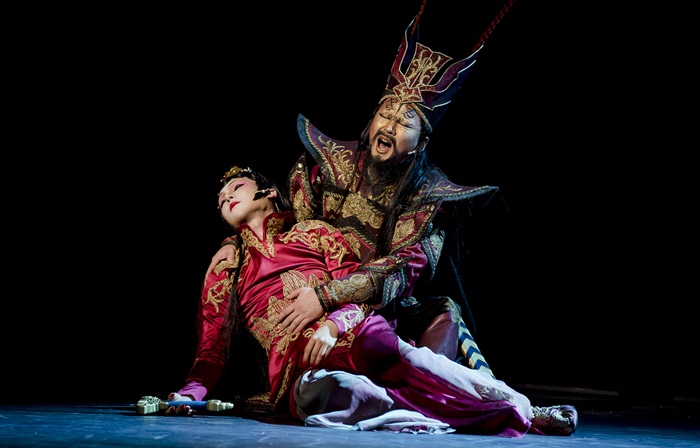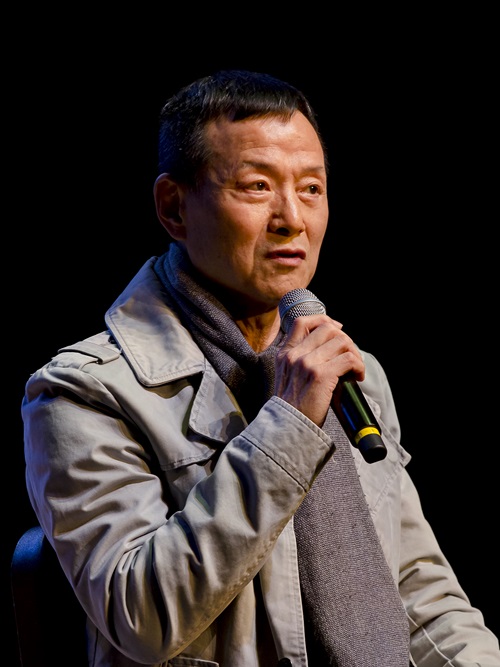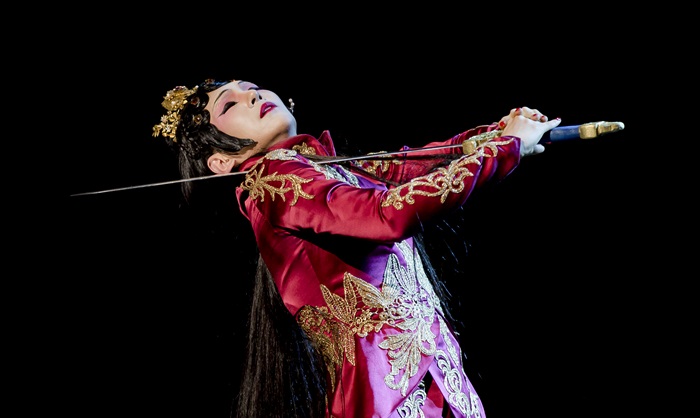
Hegemon-King of Western Chu Xiang Yu is shown here embracing the body of his favorite concubine, Consort Yu, after her suicide in "Farewell My Concubine," a changgeuk or traditional Korean opera featuring the Korean one-person lyrical opera pansori.
By Kang Gahui and Kim Hwaya
Photos = National Changgeuk Company of Korea
A king embraces with his trembling hands the body of his lover who has just killed herself. The actor sings a traditional Korean song rather than one from Beijing opera in an extravagant Peking opera costume and displays elegant motions.
The highlights of the National Changgeuk Company of Korea's (NCCK) production of "Farewell My Concubine" were shown on April 3 at the National Theater of Korea. This well-known Peking opera is a tragic love story set in ancient China between Hegemon-King of Western Chu Xiang Yu and his favorite concubine, Consort Yu.
The NCCK created an experimental work in blending pansori (traditional Korean one-person lyric opera) with Peking opera, combining the sounds heard in changgeuk (traditional Korean opera featuring pansori) with the stage costumes and body movements of the classic Chinese form of theater.
The company had suggested this work of Sino-Korean fusion to Taiwanese actor and director Wu Hsing-Kuo. Having worked on the modernization of Peking opera through reinterpretations of "King Lear," "Macbeth" and "Waiting for Godot," he said tradition is more valuable when blended with the present.

Wu Hsing-Kuo, director of the fusion Korean-Chinese work "Farewell My Concubine"
After the highlights of the work were presented, Wu said, "All artistic genres and works have their own unique ways to express art, but pansori's best charm is its ability to express inner life force and a cry toward the universe at the same time."
"Chinese history has devalued and stigmatized all failures but Hegemon-King Xiang Yu is the only person who is called a hero despite losing in battle. This is because he was an honest and warmhearted person, so I wanted to show his heroic character and love through the medium of pansori."
Lee Ja-ram, a pansori composer and music director of this changgeuk, said, "(The scene) 'Feast at Hong Gate' in Chapter Two is based on Jeokbyeokga (Song of the Red Cliffs) and the chorus of Xiang Yu and Consort Yu in Chapter Six is based on the sarangga (love song) from Chunhyanga (The Tale of Chunhyang)."
"We tried to present changgeuk's potential to embrace the traditions of other cultures through this work."
"Farewell My Concubine" is being presented through April 14 with both Korean and English subtitles at Daloreum Theater of the National Theater of Korea.

A scene from the changgeuk (Korean pansori opera) "Farewell My Concubine"
kgh89@korea.kr